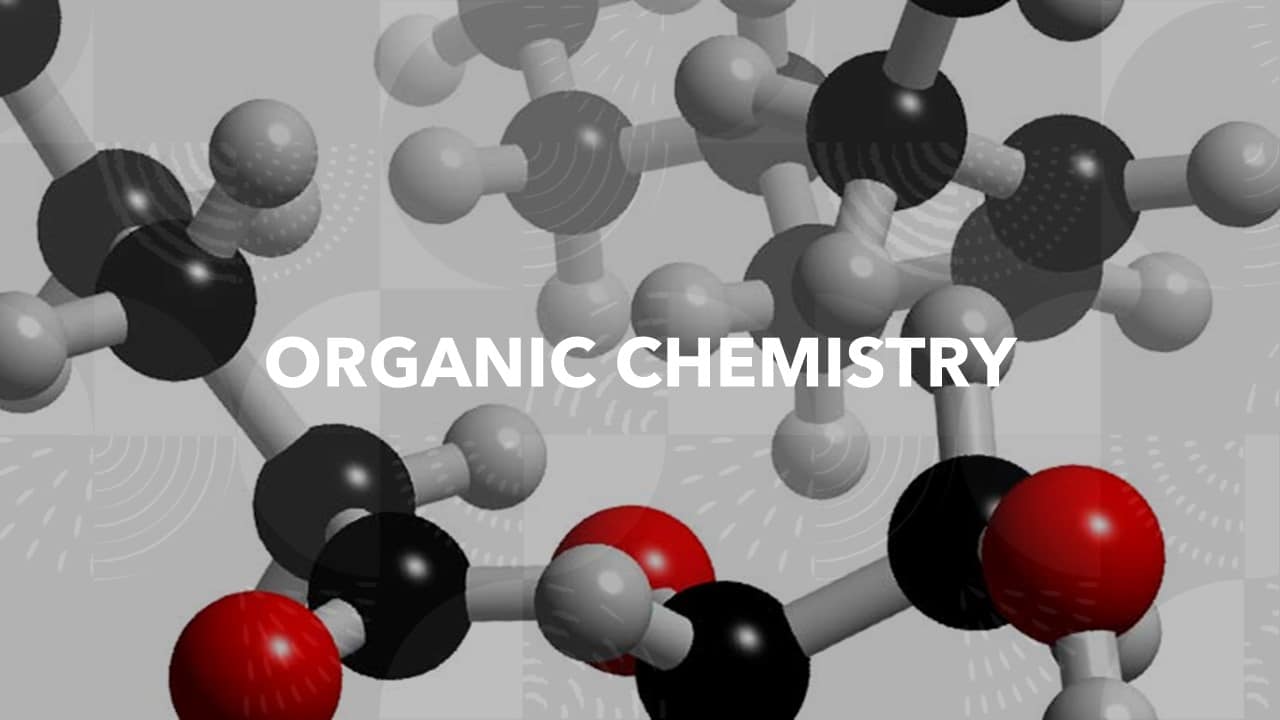STD X – ORGANIC CHEMISTRY – NEWTON
About Course
In this section will learn this following chapters:
1.introduction, types of organic compounds
2.functional group, hydrocarbons, isomers,
3.nomenclature
4.Alkanes-I
5.Alkenes-I
6.Alkynes-I
7.Alcohols
8.carboxlyic acids
Last Updated:October 4, 2024
0 (0 Ratings)
Share Course
Page Link
Share on social media

Description
Organic Compounds
An organic compound is a chemical containing carbon. However there are some exceptions such as carbides, carbonates and simple oxides of carbon which contain carbon, but considered as inorganic compounds. Organic chemistry is the study of organic compounds. In this topic you will be studying about the nature of carbon, structural isomerism and types of structural isomerism and homologous series.
Structural isomerism
Structural isomerism is a phenomena commonly seen in carbon compounds and is due to difference in the arrangement of atoms or groups of atoms.
Nomenclature of Organic Compounds
Nomenclature is the system of assigning a name to a compound. Naming systems are classified in to two and they are:
Common or trivial system
International Union of Pure and Applied Chemistry (IUPAC) system
Trivial system: Nomenclature is based on the source and specific properties of organic compounds.
IUPAC: A more systematic approach where the compound name and its molecular structure are correlated. This nomenclature defines a set of rules and derives a unique name for compounds. Accordingly, each organic compound consists of a root word, a prefix and a suffix.
Hydrocarbons
Hydrocarbons are compounds that consist of only hydrogen and carbon.
Hydrocarbons are broadly classified into two main groups, namely:
• Open chain hydrocarbons
• Closed chain or cyclic hydrocarbons
Alkanes
Alkenes
Alkynes
Alcohols
Carboxylic Acid
Free
Free
Free access this course
-
LevelIntermediate
-
Total Enrolled5
-
Last UpdatedOctober 4, 2024
Hi, Welcome back!
Material Includes
- 🔥 Live Interactive classes with in-class doubt solving
- ⭐ Weekly Test and Quiz with instant tracking for progress
- ⚙️ Revision of the course after testing
- 👋 Fortnightly Parents and Tutor interactions
- 🌷 Expert monitoring of student's learning progress
- 👨👩👧👧 Daily communication over call, whatsapp and mail
- 💻3 hours on-demand video
- ✍4 downloadable resources
- ⌛Access for entire Academic Year
- 📱Access on mobile and Desktop
- 📋Assignments and review of the same
- 💡Tests and Correction by Board paper checkers
- 🏅Certificate of completion and Live tracking with Grade book
Course Duration:
0
Course level:Intermediate
Enrolled:5
About Course
In this section will learn this following chapters:
1.introduction, types of organic compounds
2.functional group, hydrocarbons, isomers,
3.nomenclature
4.Alkanes-I
5.Alkenes-I
6.Alkynes-I
7.Alcohols
8.carboxlyic acids
Course Curriculum
ORGANIC CHEMISTRY – 03 MAY – CHARACTERISTICS OF ORGANIC COMPOUNDS
-
ORGANIC CHEMISTRY – CORE CONCEPT – WHAT ARE ORGANIC COMPOUNDS
05:31 -
ORGANIC CHEMISTRY – PHYSICAL CLASS – DIFFERENCE BETWEEN ORGANIC AND INORGANIC COMPOUNDS
07:22 -
ORGANIC CHEMISTRY – CORE CONCEPT – INTRODUCTION TO HYDROCARBONS
01:52 -
ORGANIC CHEMISTRY – PHYSICAL CLASS – FUNCTIONAL GROUP
13:21 -
ORGANIC CHEMISTRY – CORE CONCEPT – FUNCTIONAL GROUPS
09:55 -
ORGANIC CHEMISTRY – PHYSICAL CLASS – TYPES OF HYDROCARBONS
14:30 -
ORGANIC CHEMISTRY – PHYSICAL CLASS – PROPERTIES OF TETRAVALENCY AND CATENATION
16:32 -
ORGANIC CHEMISTRY – CORE CONCEPT – TETRAVALENCY
07:08 -
ORGANIC CHEMISTRY – CORE CONCEPT – CATENATION
07:33 -
ORGANIC CHEMISTRY – CORE CONCEPT – CATENATION II – FORMATION OF BONDS
10:18 -
ALKANES – PHYSICAL CLASS – ISOMERS AND SOURCES
09:36 -
ALKENES – PHYSICAL CLASS – ISOMER, PREPARATION AND CHEMICAL PROPERTIES
18:28 -
ORGANIC CHEMISTRY – PHYSICAL CLASS – PART 2
17:12
ORGANIC CHEMISTRY – 04 MAY 2023 – ISOMERISM AND NOMENCLATURE
-
ORGANIC CHEMISTRY – PHYSICAL CLASS – NOMENCLATURE
17:12 -
Nomenclature – SUPPORT MATERIAL – NOMENCLATURE
01:13 -
ORGANIC CHEMISTRY – PHYSICAL CLASS – ISOMERISM AND HOMOLOGOUS SERIES
13:42 -
ORGANIC CHEMISTRY – SUPPORT MATERIAL – HOMOLOGOUS SERIES
01:06 -
ORGANIC CHEMISTRY – CORE CONCEPT – ISOMERISM
12:40 -
ORGANIC CHEMISTRY – SUPPORT MATERIAL – ISOMERISM
06:00 -
ORGANIC CHEMISTRY – PHYSICAL CLASS – ISOMERISM AND ROOT WORD
23:23 -
ORGANIC CHEMISTRY – PHYSICAL CLASS – EXAMPLES OF NOMENCLATURE
17:51 -
[RHEA] [PHYSICAL] ORGANIC CHEMISTRY – RECAP OF PROPERTIES OF CARBON, ISOMERISM AND HOMOLOGOUS SERIES
21:39 -
[RHEA] [PHYSICAL]: ORGANIC CHEMISTRY – IUPAC NAME – NOMENCLATURE
06:55
ORGANIC CHEMISTRY – 05 MAY 2023 – ALKAENS AND ALKALE
-
ALKANES – PHYSICAL CLASS – PREPARATION OF ETHANE AND METHANE
17:08 -
ALKANES – PHYSICAL CLASS – CHEMICAL PROPERTIES OF ETHANE AND METHANE
15:45 -
ORGANIC CHEMISTRY – PHYSICAL CLASS – FUNCTIONAL GROUPS
15:46 -
ORGANIC CHEMISTRY – PHYSICAL CLASS – PROPERTIES OF CARBON
23:23 -
ORGANIC CHEMISTRY -PHYSICAL CLASS – TYPES OF HYDROCARBONS AND ISOMERS
23:23
SATURATED HYDROCARBONS
-
SATURATED HYDROCARBONS – SUPPORT MATERIAL – NAMING OF SATURATED HYDROCARBONS – ALKANES
01:47 -
QUIZ – ORGANIC CHEMISTRY – ALKANES, ALKENES AND ALKYNES
UNSATURATED HYDROCARBONS
-
UNSATURATED HYDROCARBONS – SUPPORT MATERIAL – NAMING OF UNSATURATED HYDROCARBONS – ALKENES AND ALKYNES
01:34 -
QUIZ – ORGANIC CHEMISTRY-HYDROCARBONS > NOMENCLATURE – ORGANIC COMPOUNDS
-
QUIZ – ORGANIC CHEMISTRY – ALKANES AND ALKENES
ORGANIC CHEMISTRY – ONLINE CLASS – 25 OCT 2023
-
ORGANIC CHEMISTRY – ONLINE CLASS – PROPERTIES OF CARBON ATOM, ISOMERS AND FUNCTIONAL GROUPS
01:06:11 -
ORGANIC CHEMISTRY – ONLINE CLASS – NOMENCLATURE
42:22 -
[RHEA] [ONLINE] PRACTICAL CHEMISTRY – TABULATION OF TESTS FOR GASES AND EFFECT OF HEAT
21:51
ASSIGNMENT, DUE DATES AND DISSCUSSION
Student Ratings & Reviews

No Review Yet

